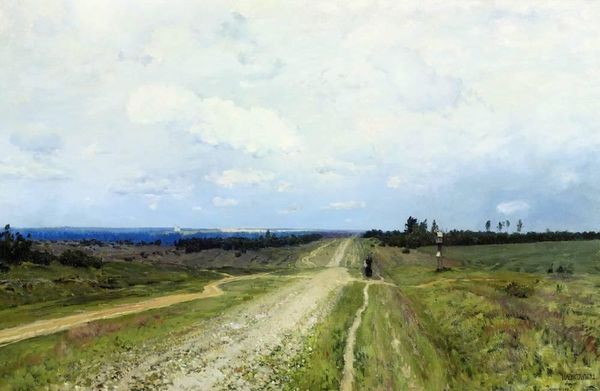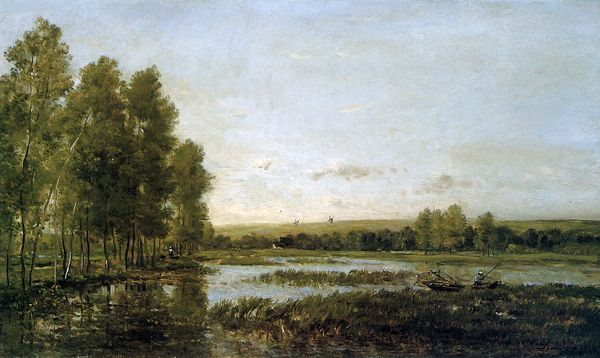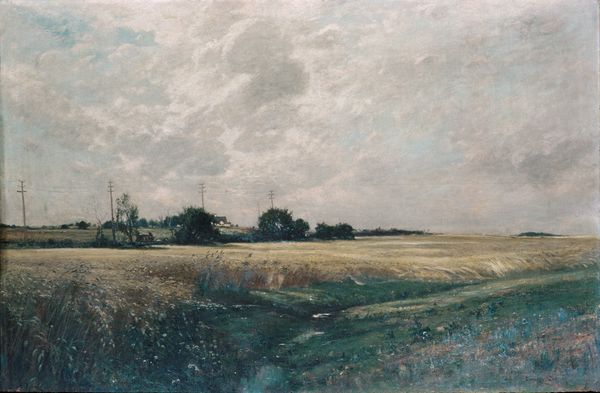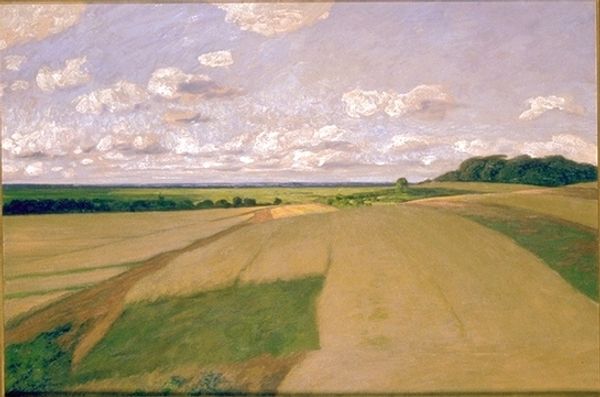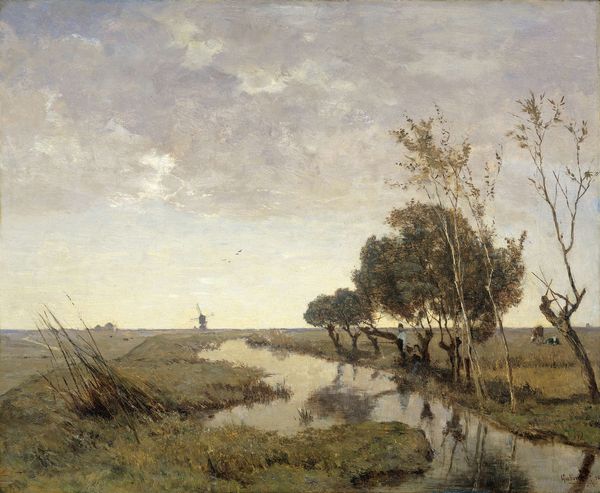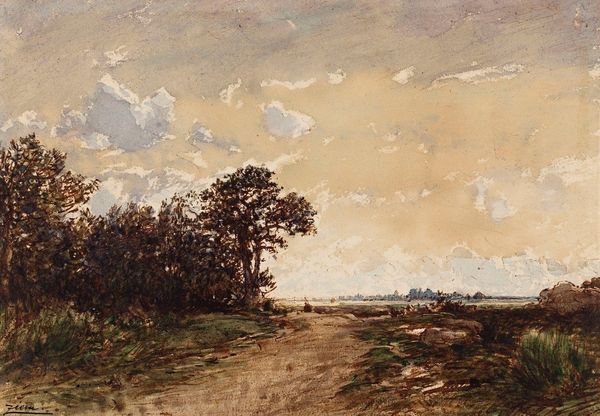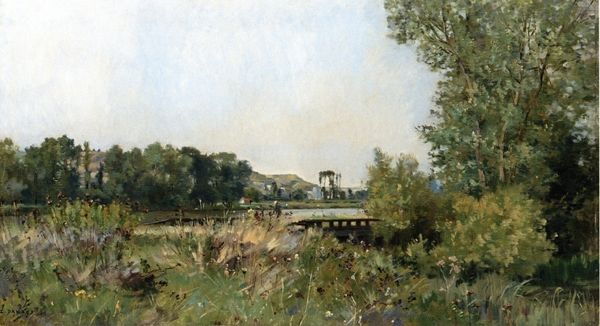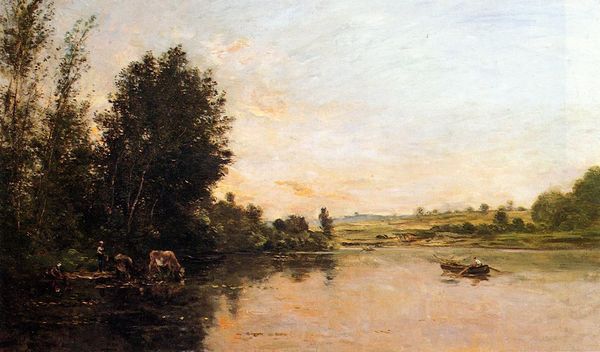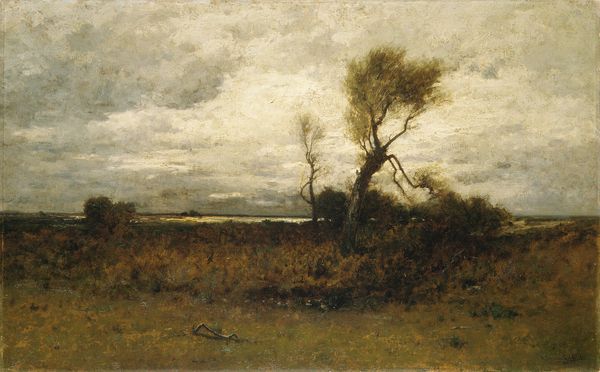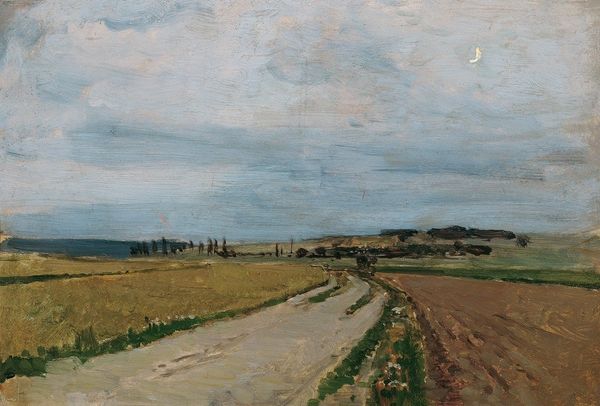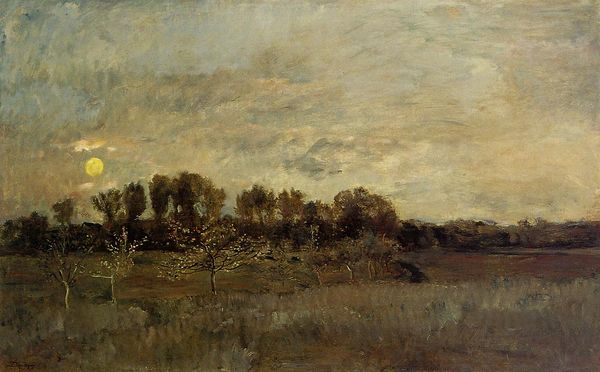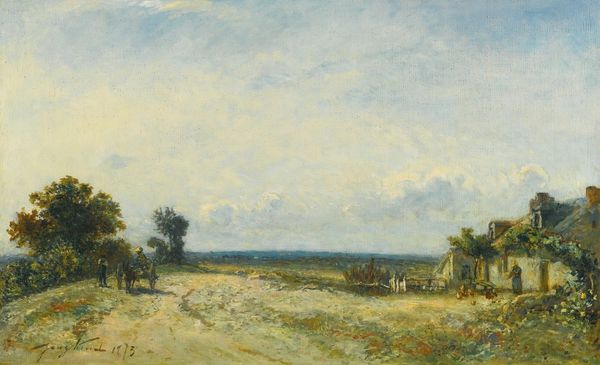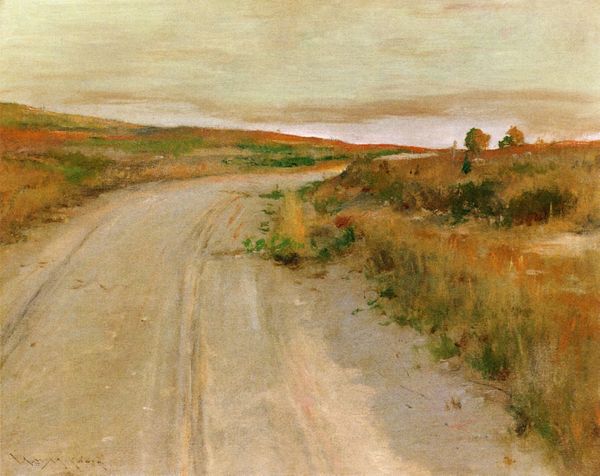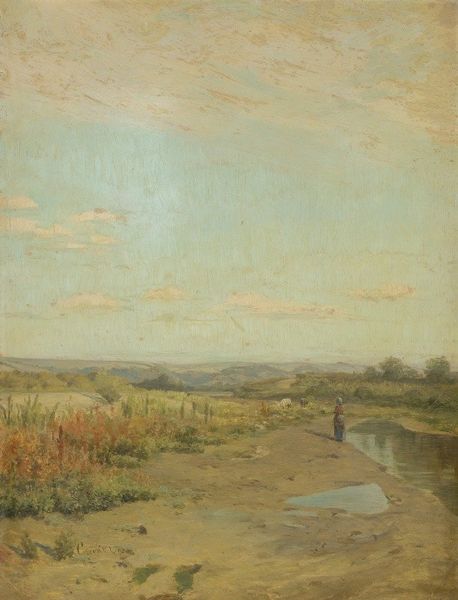
#
tree
#
sky
#
countryside
#
vehicle
#
landscape
#
charcoal drawing
#
impressionist landscape
#
possibly oil pastel
#
nature
#
oil painting
#
road
#
forest
#
landscape photography
#
seascape
#
natural-landscape
#
coastline landscape
#
italy
#
watercolor
Copyright: Public domain
Curator: Giuseppe de Nittis painted "Lungo l'Ofanto" in 1870. The canvas presents a landscape in Italy. Editor: There is a pervasive quietude— a rather melancholic stillness made especially vivid by the painting's rather muted palette. Curator: Yes, the artist’s employment of tonality, a kind of rigorous selection of light and dark hues, offers unity to the composition, particularly in grounding the spatial relationships within the composition. Editor: The muted tones remind me of labor, land cultivation, and the material fact that the ochre road bisects fields for commerce. Did the painter engage with workers to produce his materials or was it done for him? I think the social background would allow the colors to deepen with meaning. Curator: Interesting proposition. I see the artist applying specific formalist compositional devices. For example, he divided the canvas into thirds: the river plane and shoreline against a high horizon line beneath the expansive sky. That the road runs towards us engages a specific dynamic tension with the recessive plane of water. Editor: I am inclined to suggest the surface, with what seem to be deliberate thick passages of paint across the trees to the right, demonstrates more than a landscape exercise. Curator: I agree that the application of paint, its very materiality, carries weight here. Editor: I find myself meditating on how landscape painting provided an aesthetic language to depict modernization and nation-building at the time. Curator: Well, for me, it all comes back to that carefully constructed perspective. How De Nittis creates a certain visual order using formal relations remains the real focus here. Editor: True. Ultimately, the very act of depiction and our perspective of it must be situated, understood, as part of complex socioeconomic networks.
Comments
No comments
Be the first to comment and join the conversation on the ultimate creative platform.
